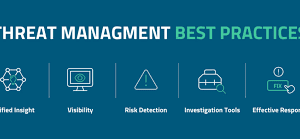In today’s hyper-competitive environment, the need for asset management is growing by the day. Growth is definitely on top of every individual and company’s mind. However, in the race of reaching the top, asset management is often overlooked. This can hamper the portfolio extensively and detriment the growth gradually.
In simple words, asset managers play a pivotal role in the success of a company or an individual. They play an integral part in building their client’s wealth and thereby maintaining it. Asset managers most definitely boost wealth creation while maintaining an acceptable level of the risk element.
Here’s a read on what is asset management, the role of asset managers, and why it is so important today.
What is Asset Management:
To put it accurately, asset managers work for individuals and companies with the end goal of growing their portfolios and finances. These professionals make well-timed investment decisions on behalf of their clients and diversify their portfolios by giving them access to high capital appreciation risks.
Asset management is an implementation of increasing the overall wealth by obtaining and maintaining investments that have the potential to grow in value. Asset managers don’t just provide professional advice but make decisions depending on their client’s risk tolerance level and financial situation.
Asset managers offer their services to individuals, companies, and institutional investors. Their services are designed to provide an expansion of wealth that cannot be attained independently. Typically, asset management covers various areas such as stocks, real estate, bonds, commodities, mutual funds, hedge funds, and private equity.
Types of Asset Managers:
To understand the services offered by asset managers in detail, let’s know the types of asset managers.
-
Financial Advisor
Not necessarily, a financial advisor can buy or sell on behalf of their investor. However, they have all the right to make accurate recommendations.
-
Robo-Advisor
A robo-advisor is not a person but a computer algorithm that requires no human intervention. This service is designed to monitor an investor’s portfolio by buying and selling investments as per the programmed goals.
-
Registered Investment Advisor
The role of a registered investment advisor (RIA) is to advise on security trade and manage their portfolio.
-
Investment Broker
Investment brokers can either be an individual or a firm. They work on a commission basis and act as intermediaries for their clients to buy securities and stocks.
The role of an Asset Management Company
- Asset management companies perform extensive research on the current market trends before making any suggestions.
- They take responsibility for the best utilization of funds.
- AMC seamlessly assists with the involved risks.
- To shortlist options and finally project the most profitable ones.
- To allocate funds strategically.
- Asset management companies play a big role in diversifying the clients’ portfolios.
- To determine which asset to hold, buy or sell.
- Review the performance of every investment from time to time.
- Evaluate the market.
- Put forward the possible market trends and downfalls.
- Maximize profitability with every investment.
- Liaising and negotiating with suppliers to avail best asset prices.
- Plan upcoming investments.
- To work closely with asset management systems and tracking technologies.
- Ensuring up-to-date financial records.
- Accurate assessments.
- Develop strategies to increase ROI.
- Being proactive about potential adjustments.
- Recommending corrective measures when needed.
Why Does One Need An Asset Manager?
Here are the top reasons why asset management is a must today.
- Have an accurate track of all assets.
- Ensure asset recovery that leads to better returns.
- Get your assets managed in an efficient and professional manner.
- Have access to inventory reports at any given time.
- Optimize operations that include planning and execution.
- Save time and indulge in smart investing.
- With the help of their in-depth statistical analysis, be certain of minimizing mistakes.
- Seamless coordination with anyone connected in the financial journey.
- Feel good and secure about your future.
Hiring an asset manager does entail a fee but also comes with a string of benefits. So without any hesitation, take the first step toward your future.



































